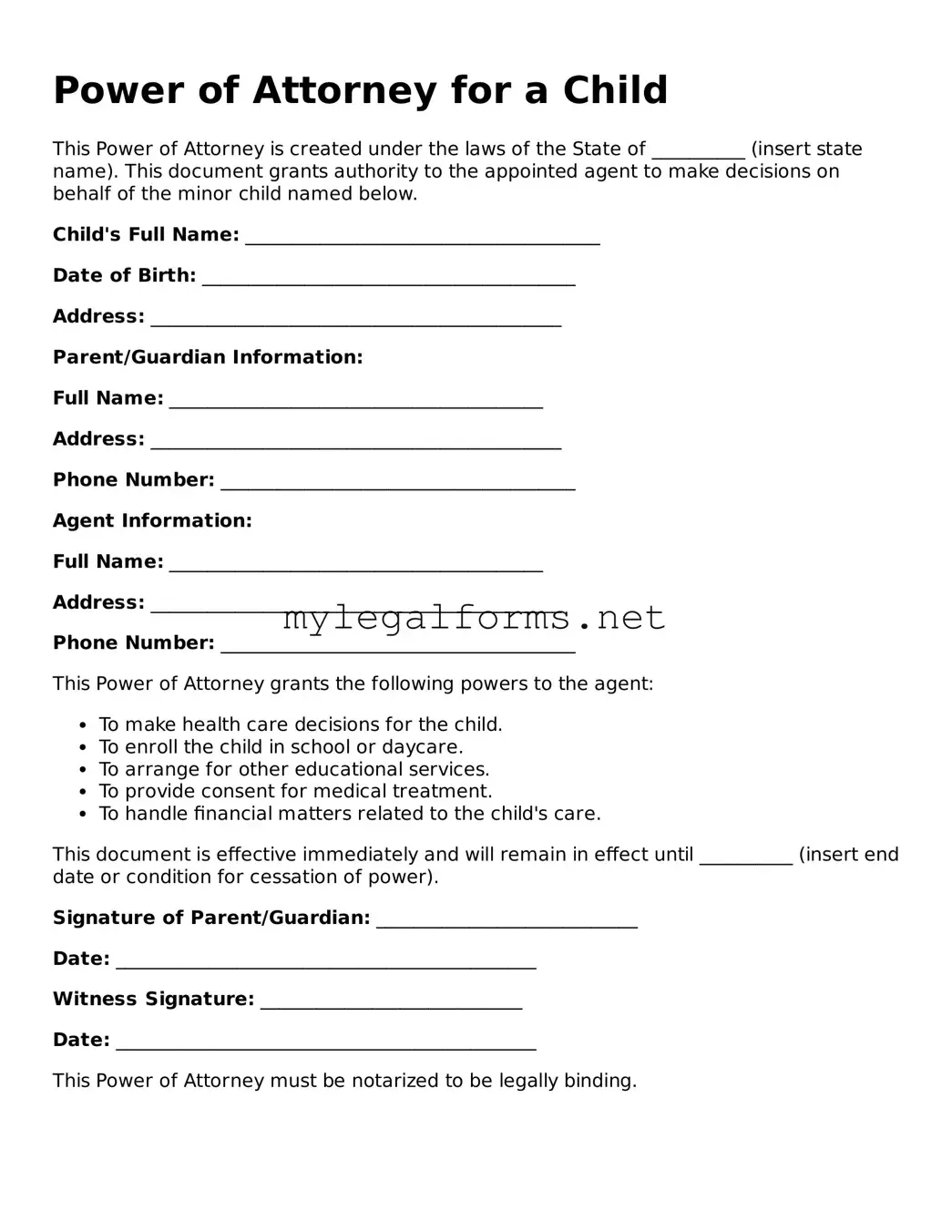Attorney-Approved Power of Attorney for a Child Form
The Power of Attorney for a Child form allows a parent or legal guardian to designate another adult to make decisions on behalf of their child. This legal document can be crucial in situations where the parent is unavailable, ensuring that the child's needs are met promptly. Understanding how to properly execute this form can provide peace of mind and security for both the child and the designated caregiver.
Launch Power of Attorney for a Child Editor

Attorney-Approved Power of Attorney for a Child Form
Launch Power of Attorney for a Child Editor

Launch Power of Attorney for a Child Editor
or
⇓ PDF Form
Complete the form at your pace — fast
Finish your Power of Attorney for a Child online and download the final version.